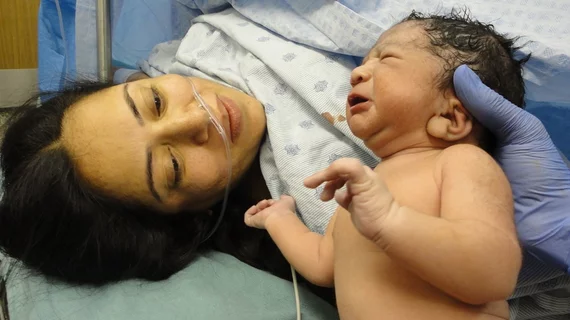AI nabs risky abnormalities in the maternity ward
Machine learning can help post-childbirth mothers guard against problems with subsequent pregnancies, potentially saving their lives and those of their future babies.
The technique works by automatically detecting a microscopic abnormality in the placenta called decidual vasculopathy, or DV, on lab slides. Currently many placentas are discarded before being examined for DV due to overbooked perinatal pathologists.
Researchers developed the AI approach to help solve the shortfall with the main aim of preventing preeclampsia, a dangerous disease that affects 2% to 8% of all pregnancies.
The work was conducted at Carnegie Mellon University and the University of Pittsburgh Medical Center. It’s running in the American Journal of Pathology.
The team had multidisciplinary expertise spanning perinatal pathology, computer science and mechanical engineering.
“Ultimately, the approach will allow many more placentas to be screened in a more standardized manner, providing feedback about which cases would benefit most from more in-depth pathologic inspection,” lead author Daniel Clymer, PhD, and colleagues write.
In a news release sent by journal publisher Elsevier, Clymer adds that pathologists need not prepare for reentering the job market.
“The goal here is that this type of algorithm might be able to help speed up the process by flagging regions of the image where the pathologist should take a closer look,” he says.
The study is posted in full for free.

